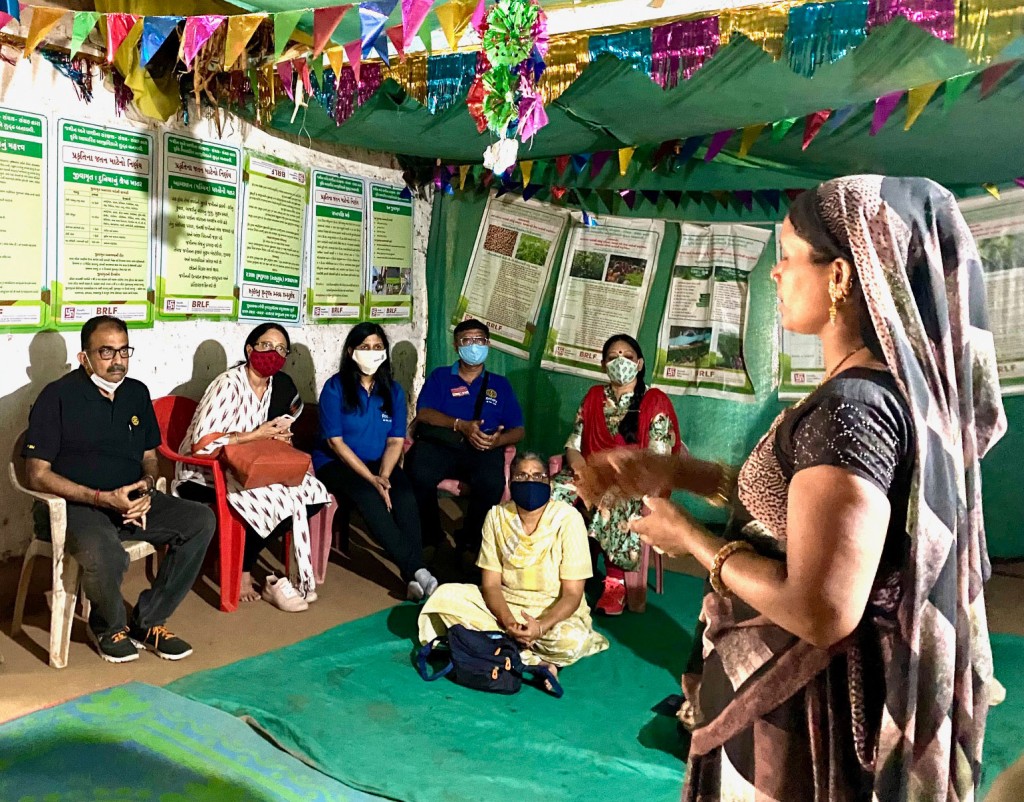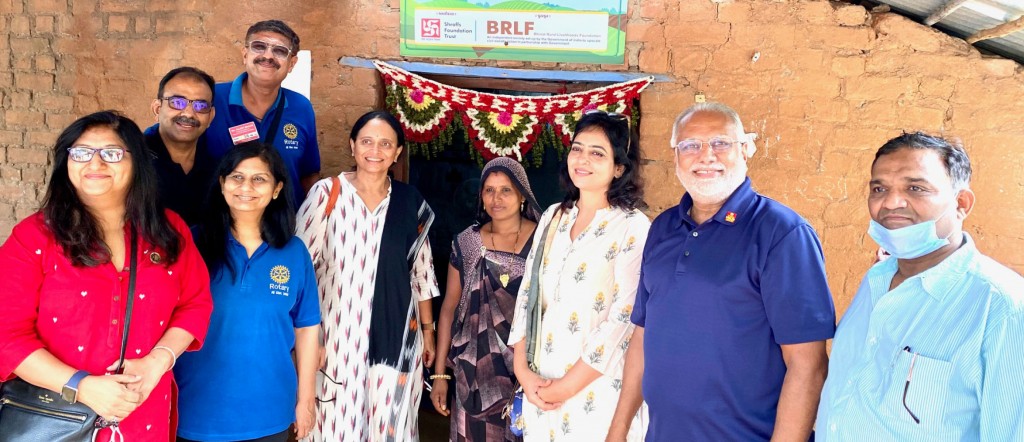It’s time to revisit Leelaben, the woman from Katarvad, a tribal village in Gujarat whom you had met on the pages of Rotary News in December 2015. Especially as the flavour in Rotary these days is the empowerment of women. To recap… with RC Baroda Metro, RID 3060, implementing a GG project worth ₹65 lakh, her tribal village of Katarvad, about 130 km east of Vadodara in Gujarat, had been totally transformed. In the process, it had also thrown up a self-confident and smart woman leader.


A natural leader, she had come forward to describe the transformation both the male and female farmers of her village had undergone, thanks to the Rotary project run in partnership with the Shroff Family Charitable Trust which runs a farm school in the region. After having undergone training herself at this farm school, she was then training other farmers. With great confidence she had explained to us the concept of SRI (systematic rice intensification), vermicomposting and biofertilisers. The main project undertaken by the Rotarians was augmentation of water resources in the village to help the farmers.
“Now, our club has undertaken another global grant, this time for ₹85 lakh and we are going to transform two tribal villages — Chilliyavant and Sanada, in Chhota Udepur district, about 120 km away from Vadodara,” says PDG Pinky Patel, a member of RC Baroda. Once again, it’s a water conservation and augmentation project to harness the local water resources to help the water needs in these villages.
Leelaben was all praise for Rotary and said that thanks to Rotary’s intervention her villages are able to grow two crops in a year and migration to the city has stopped.
As in many parts of India, the farmers in these villages are also totally dependent on rainwater to irrigate their land. “So just as we did in Katarvad village, which you visited, in these two villages too, as it is a hilly region, we are going to level the land to prevent soil erosion by the gushing rainwater, build check dams, bori dams, community wells and implement other measures to ensure that the water table in the area comes up so that the villagers have water throughout the year,” says past RI director Manoj Desai, also a member of this club.
In September, after the corona lockdown was lifted and the pandemic had eased, along with PDG Pinky Patel and other core members of this project, Desai visited the two villages. “As we work with the Shroff Foundation, their members took us to Katarvad, where we met Leelaben, who has now emerged as a top woman leader in the village; everybody respects her and she is guiding other women. It was so good to see her talk with so much confidence. This is true women’s empowerment,” he smiled.
This time the project envisages transformation of nine villages and in the first phase work in two villages has begun. “Basically, we are just replicating the Katarvad model as that village has really been transformed by our club’s project,” he added.

PDG Pinky said that these two villages have over 600 households and a population of about 3,500. Creating women’s self-help groups, is also a component of this project the club calls Triple E — empathise, energise and empower. “This is a triple partnership between RC Baroda Metro, RC Tainan Phoenix, US, RID 3470, and the Shroff Foundation Trust.
She says that the topography of the terrain does not allow groundwater to recharge, hence normally only one rain-fed crop is possible. With limited income, in the past a lot of migration from the villages to towns was happening. “Our objective is to improve the water table and bring two assured crops under irrigation. We also want to create institutional arrangements for community managed land development, operation and maintenance of the entire system, and do skill development of both the youth and women.”
The crops grown in these villages are rice, maize, urad dal, and seasonal vegetables. “Some of the farmers told us that during the lockdown they were growing watermelons and selling them on the highways. We were very touched to learn that often, these farmers offered watermelons free of cost to the truck drivers,” she said.
Pinky adds that when they visited Katarvad, “Leelaben was all praise for Rotary and said that thanks to Rotary’s intervention her villages have been upgraded to a level where they now have two crops in a year and migration to the city has stopped. We were so happy to learn that thanks to Rotary’s work, these villages have become self-sufficient.”
And for this, let me recall the words of the club’s past president Sunil Vakil, who had worked on the first global grant for Katarvad. “We have not brought rocket science here; all we have done are simple interventions, such as building check dams, a couple of community wells, some water harvesting measures in 10 ‘model houses’ we created with cattle sheds, biogas plants etc.”





